Is there a specific tradition or activity you celebrate as part of your culture?
My family always celebrates and participates in any local events in Jersey, especially Liberation Day.
We always celebrate St Patrick’s day as part of my Irish tradition.
We always celebrate the last day of the year (called Hogmanay in Scotland) and will usually host the celebration at our home with all the family.
In celebration of St David’s day every year, my family and I will wear a daffodil in celebration of this Welsh tradition.
If you had to describe your cultural heritage to someone who didn’t know about it, what would you say?
To describe my cultural heritage, I have chosen a recipe for welsh scones . My nan used to make them all the time and they are delicious.
Ingredients
225g plain flour
85g caster sugar
½ tsp mixed spice
½ tsp baking powder
50g butter, cut into small pieces
50g lard, cut into small pieces, plus extra for frying
50g currant
1 egg, beaten
splash of milk
Method
Tip the flour, sugar, mixed spice, baking powder and a pinch of salt into a bowl. Then, with your fingers, rub in the butter and lard until crumbly. Mix in the currants. Work the egg into the mixture until you have soft dough, adding a splash of milk if it seems a little dry – it should be the same consistency as shortcrust pastry. Roll out the dough on a lightly floured work surface to the thickness of your little finger. Cut out rounds using a 6cm cutter, re-rolling any trimmings. Grease a flat griddle pan or heavy frying pan with lard, and place over a medium heat. Cook the Welsh cakes in batches, for about 3 mins each side, until golden brown, crisp and cooked through. Delicious served warm with butter and jam, or simply sprinkled with caster sugar. Cakes will stay fresh in a tin for 1 week.”
Is there a specific tradition or activity you celebrate as part of your culture?
Remembrance Day – Memorial Day celebrates the men and women who gave their lives for our country. Since Memorial Day honours the US military dead, it’s common for those celebrating the holiday to visit and bring flowers to memorials and cemeteries which honour those who have died in military service.
If you had to describe your cultural heritage to someone who didn’t know about it, what would you say?
I’m proud to be born in Liverpool and would describe Liverpudlians as very warm, caring and funny people.
“You’ll Never Walk Alone” is a song that is very well known around the world and brings to life how the British people unite. It is a show tune from the 1945 Rodgers and Hammerstein musical Carousel. In the second act of the musical, Nettie Fowler, the cousin of the protagonist Julie Jordan, sings “You’ll Never Walk Alone” to comfort and encourage Julie when her husband, Billy Bigelow, the male lead, falls on his knife and dies after a failed robbery attempt. It is reprised in the final scene to encourage a graduation class of which Louise (Billy and Julie’s daughter) is a member. The now invisible Billy, who has been granted the chance to return to earth for one day in order to redeem himself, watches the ceremony and is able to silently motivate the unhappy Louise to join in the song.
The song is also sung at association football clubs around the world, where it is performed by a massed chorus of supporters on match day; this tradition developed at Liverpool FC after the chart success of the 1963 single of the song by the local Liverpool group, Gerry and the Pacemakers, and it is considered a theme song of Liverpool FC more so than any other team. In some areas of the UK and Europe, “You’ll Never Walk Alone” became the anthem of support for medical staff, first responders, and those in quarantine during the COVID-19 pandemic:
Is there a specific tradition or activity you celebrate as part of your culture?
St George’s Day and St Patrick’s Day are significant traditions we celebrate each year. Socially, I support the England football team in the World Cup and England’s rugby team in the Six Nations.
If you had to describe your cultural heritage to someone who didn’t know about it, what would you say?
My mother’s grandmother on her father’s side was from a very wealthy family in Donegal, Ireland. Unfortunately, she ran away with the Gypsy groom employed by her family. She subsequently had 12 children with him and moved to Bradford, England where he left her to bring up the 12 children on her own. From this experience, we are mentally strong, dignified, distrustful of men and fairly big drinkers of alcohol, but only in a social capacity.
Is there a specific tradition or activity you celebrate as part of your culture?
Liberation Day, 9 May. Every year we celebrate the day that the occupation of the Island during World War II ended. 2020 is the 75th anniversary year. It is a day to celebrate the hard-won freedom that we are so lucky to enjoy today.
If you had to describe your cultural heritage to someone who didn’t know about it, what would you say?
Recipe for Jersey Wonders
Traditionally, Jersey housewives cooked their Wonders as the tide went out. If they cooked them on an incoming tide, the fat in which the Wonders were cooked would invariably overflow the pan! This recipe makes 40 Wonders (Des Mervelles):
Ingredients
1 ½ lbs self-raising flour
4 oz butter
8 oz caster sugar
6 eggs
Method
Sieve flour and sugar and rub in butter, chopped into small pieces. Add whisked eggs to make a light dough.
With floured hands, make the dough into golf ball-sized shapes. Place these on a lightly floured tray and cover with a damp cloth for two hours.
Then roll out each of the balls into oblongs; two inches by four inches.
With a sharp knife, slit the centre of each oblong and twist the top end (of the oblong) through the slit.
Drop four to six Wonders at a time into a large pan of hot oil, cook for 2 minutes on each side until golden brown.
Drain on kitchen paper.
Jersey’s national anthem
Is there a specific tradition or activity you celebrate as part of your culture?
Belgium: I am from Flanders and my home town is called Hasselt. The best tradition in Hasselt is the yearly Jenever Festival where we celebrate the Jenever drink; a centuries-old alcohol beverage and precursor to gin, which is still popular to date.
Ireland: a place I studied and worked and regard as my ‘home away from home’. One of the traditions I decided to partake in was kissing the actual Blarney Stone, so I still blame it when people say I talk too much. It is the gift of the gab.
Hong Kong: the place where I live now. I still need to learn a lot about the local culture, but the one thing I love is sharing food. You never order for yourself but always a bunch of food for the whole table. This tradition, unfortunately, does not help with losing weight and my dress size has gone up.
Which countries do you consider part of your cultural heritage?
I was born in Jersey and the Jersey heritage on my mother’s side goes way back. My father is from Bradford, so I have a Yorkshire influence with a love of the intriguing vocabulary and of course, the Yorkshire puds. My husband is Colombian, and our dog is Cuban so there’s a Latin American influence now too!
Is there a specific tradition or activity you celebrate as part of this culture?
I always celebrate Liberation Day on 9th May to pay respects to those that suffered through the Occupation and to appreciate how lucky we now are. We usually get a Fruit de Mer (seafood platter) and spend hours enjoying the beautiful, fresh seafood that we’re so fortunate to have here in Jersey. For New Year’s Eve, my husband and I celebrate in the traditional Colombian way by burning ‘El Ano Viejo’, the old year. This is a lovely tradition to signify putting the past behind us and focusing on new opportunities in the year to come.
If you had to describe your cultural heritage to someone who didn’t know about it, what would you say?
I’ve never been a football fan but was lucky enough to be living in Bogota, Colombia for the 2014 World Cup when I was caught up in the football fever. I was stunned with how the Colombian team was equally comfortable kicking the ball as showing off their impressive dance skills. The commentators incredibly fast and enthusiastic commentary reveals the passion and energy of a country that I’m now proud to be connected with and balances perfectly with the more demure but equally proud side of my Jersey and British culture.
Is there a specific tradition or activity you celebrate as part of your culture?
Ramadhan, Haj and Eid
If you had to describe your cultural heritage to someone who didn’t know about it, what would you say?
Malawi
Saudi Arabia
Bahrain
India
UAE
Is there a specific tradition or activity you celebrate as part of your culture?
Liberation Day (the giant flags for the house are on order!) and around March time – the first Jersey Royal Potatoes of the season. You always need to make a wish on the first Jersey Royals you eat each year.
If you had to describe your cultural heritage to someone who didn’t know about it, what would you say?
Three words to describe my cultural heritage are: beaches, cows and potatoes
Is there a specific tradition or activity you celebrate as part of your culture?
As a family we celebrate St Patrick’s Day on 17 March every year. I also support the Irish rugby teams.
If you had to describe your cultural heritage to someone who didn’t know about it, what would you say?
I would describe my Irish cultural heritage as friendly, egalitarian – and, because we have had a global diaspora for many centuries – always happy to adapt to a new cultural home.
Is there a specific tradition or activity you celebrate as part of your culture?
Poland (country of birth), Jersey (place of residence) and England (my husbands country of birth).
Eating pickled herring, Jersey Royals and Stilton – not at the same time!
If you had to describe your cultural heritage to someone who didn’t know about it, what would you say?
The three pictures, below, best describe my cultural heritage: being courageous, resourceful and in touch with nature.
I love travelling, exploring and being outdoors. I also have a deep passion for cooking and eating!
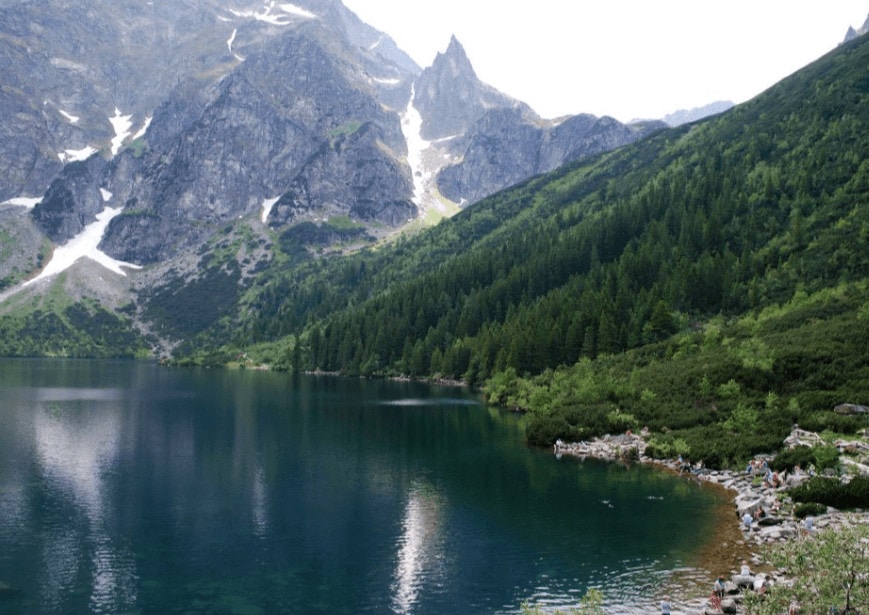
I was born and lived in Warsaw all my life, well until I moved to Jersey 13 years ago. My family always made sure to escape the big city and we regularly visited our “summer house” based outside of Warsaw for the weekends. We would go to the mountain district during longer school breaks.
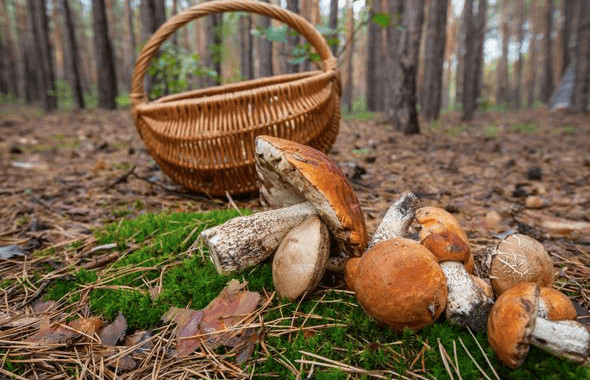
When you drive around Poland in certain seasons, you will notice people with little stalls by the roadside selling wild mushrooms, blueberries or bilberries. Wild-grown produce is great and really cheap! I used to love going mushrooming, walking for hours in the woods picking different types of wild mushroom. It was an excellent lesson of orienteering, mycology and patience.
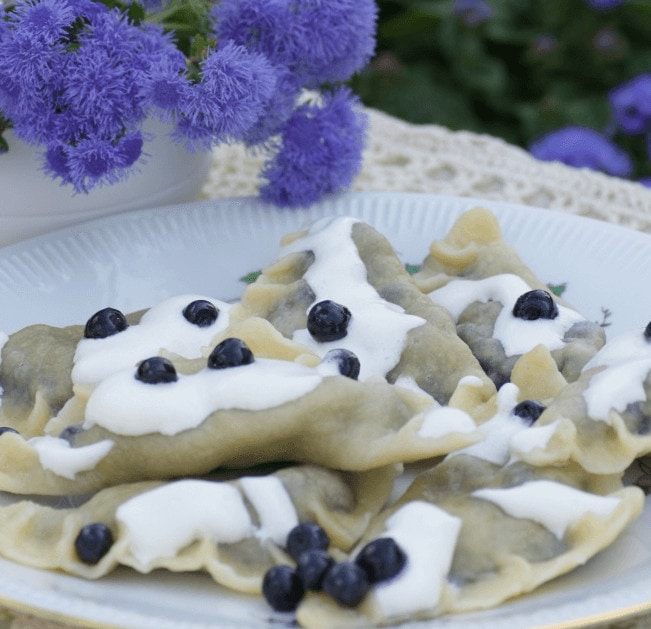
Like most Polish people, I love dumplings. These little dough cases can be made savoury or sweet, meat-filled or vegetarian. You can eat them on their own or as part of another dish. Wild blueberry dumplings with cream and honey are the flavours of my childhood and eating them always make me sentimental.
Which countries do you consider part of your cultural heritage?
Jersey’s played a huge part in my life having spent summers here from a young age – my fondest childhood memories are of Rozel beach where I now love taking my own kids – and so I’m incredibly proud to call it home. However I’ve never quite lost my affinity for my home-city of Manchester. From the more obvious examples of football and indie bands, through to feminism (Emmeline Pankhurst hailed from Moss Side) and science (the world’s first computer was produced and ran its first program at Manchester University) Manchester has left an indelible mark on British society.
Is there a specific tradition or activity you celebrate as part of your culture?
I think my favourite day of the year in the local events calendar is the Battle of Britain. Whether watching the air display from the grandstand or from the natural beauty of Noirmont point, with the artillery remains being a poignant reminder of Jersey’s war-time struggle, I think it’s significant that thousands turn out for this event to commemorate those who served and celebrate this turning point for both Britain and Jersey’s history.
If you had to describe your cultural heritage to someone who didn’t know about it, what would you say?
This view of Mont Orgueil (aka Gorey Castle). I must have at least 20 different variants of this photo on my phone, but this particular one reminds me there’s not many places in the world you can leave the office after a day at work and be on the beach with an ice cream with the kids before bedtime! The lifestyle here and the stunning scenery reminds me how lucky my family are to live here, and that there’s no place I’d rather be!
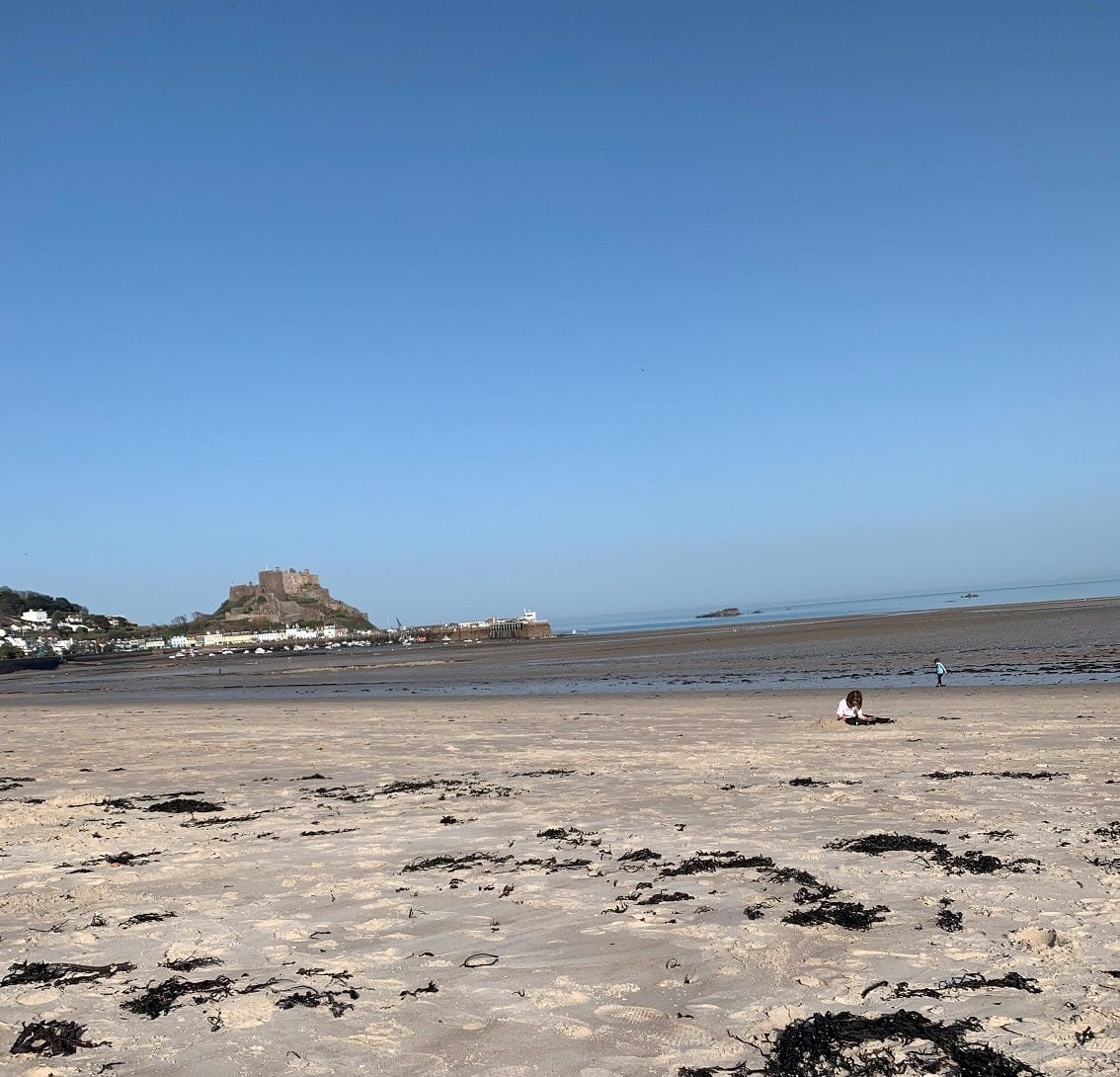
Is there a specific tradition or activity you celebrate as part of your culture?
I have Jersey and English roots. My father’s family are from Jersey and my mother’s are from Brentford, West London. Meanwhile, my husband was born in Cyprus, to English parents, as they were stationed there as members of the British Forces.
We celebrate Liberation Day in Jersey every 9 May. I always reflect on the hardships my father’s family faced during the Occupation (1940-1945) – particularly my great aunts, who worked throughout that period – one was a District Nurse and the other a Teacher.
If you had to describe your cultural heritage to someone who didn’t know about it, what would you say?
I’m a proud Jersey girl. Beautiful Jersey is unique and special – and here’s a recipe for Jersey Wonders, a local treat!
Is there a specific tradition or activity you celebrate as part of your culture?
My mother is from Madagascar and my father is from Uganda. I was born in China and grew up in Kenya, Canada and lived in England since 1991. I moved to Jersey in 2018. As far back as I can remember, my family has always celebrated Madagascar’s Independence Day on 26 June.
If you had to describe your cultural heritage to someone who didn’t know about it, what would you say?
I am African. As part of my Malagasy culture, we celebrate Independence Day on 26 June each year. Malagasy communities around the world tend to host large-scale events with lots of traditional Malagasy food, singing and dancing. It’s not a Malagasy party unless everyone dances the ‘Afindrafindrao’ – a traditional dance, similar to a Conga line, but danced in pairs. It is played and danced at most Malagasy events to open up the dance floor. The dance has its own distinct song and once the music starts playing, everybody gets up and finds a partner. The music and dancing start at a slow pace and gradually gets faster; it can get quite tricky to keep up with the pace of the music!
Is there a specific tradition or activity you celebrate as part of your culture?
Literally meaning ’wind and water’, “Feng Shui”, is the ancient Chinese practice of positioning objects and buildings in harmony with nature to bring about good fortune. Often referred to as ‘geomancy’, its origins stem from ancient Chinese respect for the environment, as well as a belief that cosmological influences have a strong effect on our lives.
Even Hong Kong itself is said to naturally have excellent feng shui. Its geographical position relative to Mainland China symbolises a place where things come to fruition. The various mountain ranges of southern China are considered to be the pulses from a moving dragon that flow into Hong Kong, while the city gazes back at its ancestral heartland. The mountains of Kowloon appear to bow to Hong Kong Island, which means that Kowloon looks to Hong Kong Island for protection and that the two places complement each other. Finally, the water of Victoria Harbour is in visual harmony with the skies, which brings stability and prosperity.
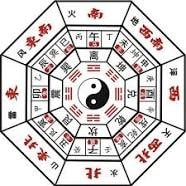
Is there a specific tradition or activity you celebrate as part of this culture?
‘Diwali’ (the festival of lights) and ‘Holi’ (the festival of colours) are the major festivals we celebrate as part of our culture. Both symbolizes the victory of good over evil.
If you had to describe your cultural heritage to someone who didn’t know about it, what would you say?
It is something that embraces all religions, traditions, customs, and beliefs.
Which countries do you consider part of your cultural heritage?
I was born in Liverpool and despite having no accent at all because I’ve spent most of my life in Jersey, those who know me well know how proud I am of being born in what I describe as the best city in the world! My father was born in Liverpool and still has the instantly recognisable Scouse accent, which he is proud of and has never wanted to lose, even though he has been away from the city for many years. My mother was a Jersey girl and I remember spending a lot of my childhood trying to imitate her Jersey accent, much to her annoyance!
Even though I have this unbreakable love for and loyalty to Liverpool, Jersey is my home and I feel very lucky to have been raised and educated here. Aside from my family, the most important people in my life are my friends and if it wasn’t for Jersey, I wouldn’t have some of the most incredible friendships. Jersey is a special place for so many reasons but if I had to pick one, it would be that it introduced those people to me, for which I will be eternally grateful!
If you had to describe your cultural heritage to someone who didn’t know about it, what would you say?
Rich in history, heritage, culture, football and music, Liverpool continues to grow and every time I visit, I am astounded by how it keeps evolving. I am an Everton fan (also known as a “Toffee” or a “Blue Nose”) and whilst my team has not been performing very well for quite some time, I am still a “True Blue” and will always be loyal to my team.
I am also a massive music fan and my favourite band in the world is The Beatles – four lads from Liverpool who changed music history forever, with a back catalogue that simply cannot be rivalled! I celebrate the International Beatles Festival in Liverpool every year at the end of August, which happens to coincide with my birthday!
Jersey comes alive in the spring and summer and that’s when I truly appreciate the quality of life I have here. My social calendar is always full and there’s so much going on – from sporting events to music festivals and boat parties, to watching amateur dramatics in the grounds of a country manor and BBQs on the beach. That’s when this social butterfly really starts to spread her wings!
Is there a specific tradition or activity you celebrate as part of your culture?
Belgium is a meeting point for the Germanic and Latin cultures. Belgians love to celebrate life and this ‘joie de vivre’ is most pronounced in our deep love for food and drink. Eating well is an extremely important part of Belgian culture and a meal is an occasion for great conversation among family and friends. When Belgians gather around a table, it is a time to leave worldly concerns behind and bond. Belgians have a gift for hospitality. Our food is cooked with French finesse, served in German portions and dishes look as good as they taste. Belgians will typically spend a large part of their day discussing, shopping, preparing and consuming food. When it comes to food, Belgium, is one of Europe’s best-kept secrets.
If you had to describe your cultural heritage to someone who didn’t know about it, what would you say?
In our country, we have a famous saying, which we take very seriously indeed: “In heaven, there is no beer, therefore we shall drink it here!” It is no coincidence that Belgian beer culture is on UNESCO’s representative list of the intangible cultural heritage of humanity. Belgium produces 1,500 types of beer using four different fermentation methods. The brewing of beer is just one of many examples where Belgians display their mastery at the enjoyment of earthly pleasures and this video gives you a taste of some the rituals involved:
Is there a specific tradition or activity you celebrate as part of your culture?
Independence Day in the United States
If you had to describe your cultural heritage to someone who didn’t know about it, what would you say?
Transatlantic
Is there a specific tradition or activity you celebrate as part of your culture?
I don’t really celebrate Jersey’s culture in any formal manner, although I am proud of its culture and history, especially the experiences of the German Occupation of Jersey during World War II and the role my grandfathers took in it and impact on both of my parent’s families, and my in-laws’ family. The courage they had, and the impact it must have had on them all, is bought into sharp relief as we deal with our own 21st century lockdown. Incidentally, my mum’s birthday in 2020 is her second in lockdown, having been born in Jersey just before the end of the Occupation in 1945!
If you had to describe your cultural heritage to someone who didn’t know about it, what would you say?
Saint Ouen’s Bay.
Is there a specific tradition or activity you celebrate as part of your culture?
The Irish are well known for their sociable culture and food has always played a big part in that. Celebrating that culture around the dining table is important to me, keeping family and friends connected.
If you had to describe your cultural heritage to someone who didn’t know about it, what would you say?
Three words to describe my cultural heritage are welcoming, sociable and musical.
From a sociable perspective, I have included a favourite sharing recipe of mine (and being Irish, it had to involve bread or potatoes!) It’s an Irish soda bread recipe from a well-known Irish chef, Richard Corrigan, which is particularly easy and very delicious!
Ingredients
250g plain flour
10g salt
15g sodium bicarbonate
150g wholemeal flour
150g jumbo oat flakes
1 tbsp clear honey
1 tbsp black treacle
500ml buttermilk
Heat the oven to 200°C and line a baking sheet.
Combine all dry ingredients in a bowl. Make a well in the centre, then mix in the honey, treacle and buttermilk, working everything together lightly with your hands until you have a loose, wet dough.
Flour your hands, shape the dough into a round and lift it onto the baking sheet. Cut a cross in the top. As the loaf cooks it will help to separate it into quarters. Put it into the oven and bake for around 35-40 minutes or until the loaf sounds hollow when tapped on the base. Transfer to a wire rack, drape a damp cloth over the top and leave to cool.
Is there a specific tradition or activity you celebrate as part of your culture?
Jersey people are known as ‘beans’, after the Jersey bean crock – a traditional meal, or crapauds (the Jèrriais word for toad). There is a statue in St. Helier of a toad, known as Le Crapaud.
If you had to describe your cultural heritage to someone who didn’t know about it, what would you say?
Jèrriais is the traditional language of Jersey, which is closely related to French. It’s an important part of Jersey’s heritage.
English Jèrriais
Good morning Bouônjour
How are you? Coumme est qu’tu’es
Goodbye À bêtôt
Happy birthday Bouôn annivèrsaithe
What is your name? Tch’est qu’est vot’ nom?
Happy Christmas Bouan Noué
How much is it? Combein qu’ch’est?
See you next week À la s’maine tchi veint
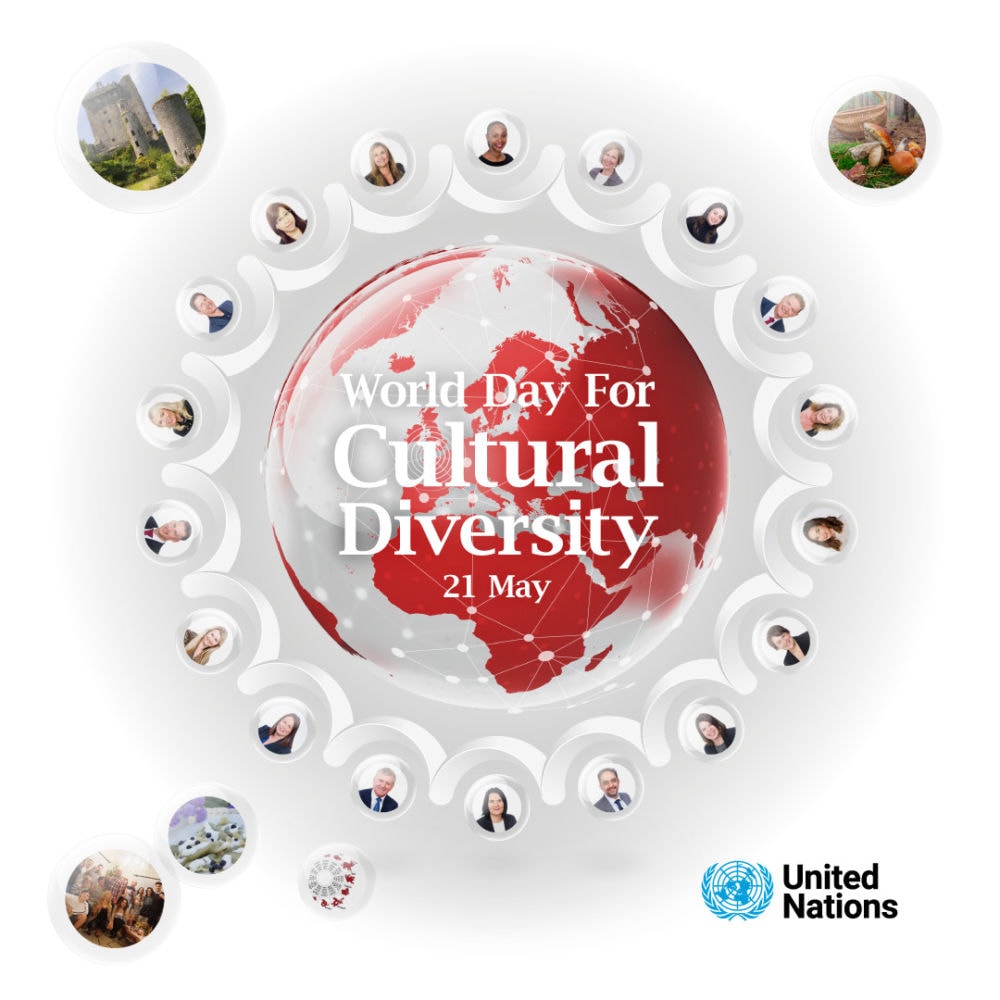

 Jersey
Jersey Scotland
Scotland Wales
Wales Ireland
Ireland
 England
England


 Belgium
Belgium Hong Kong
Hong Kong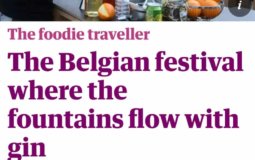
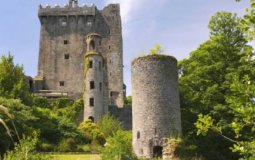


 Colombia
Colombia
 Malawi
Malawi Saudi Arabia
Saudi Arabia Bahrain
Bahrain India
India United Arab Emirates
United Arab Emirates


 Poland
Poland


 Madagascar
Madagascar Uganda
Uganda China
China




 United States
United States France
France Germany
Germany

